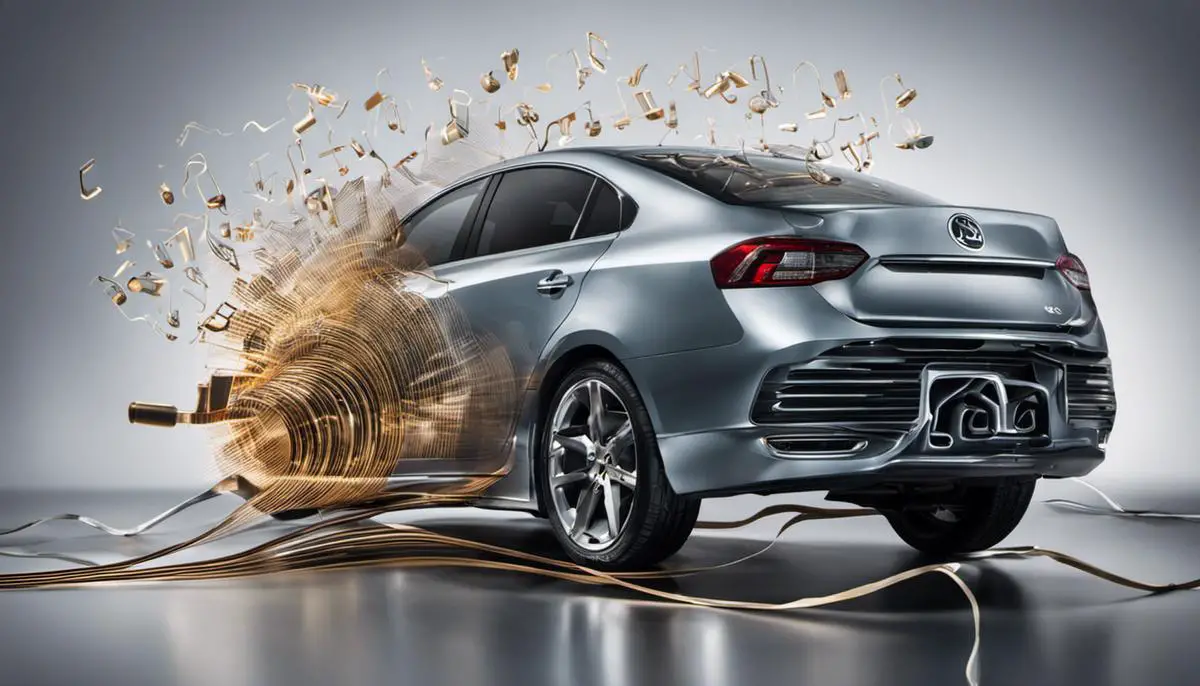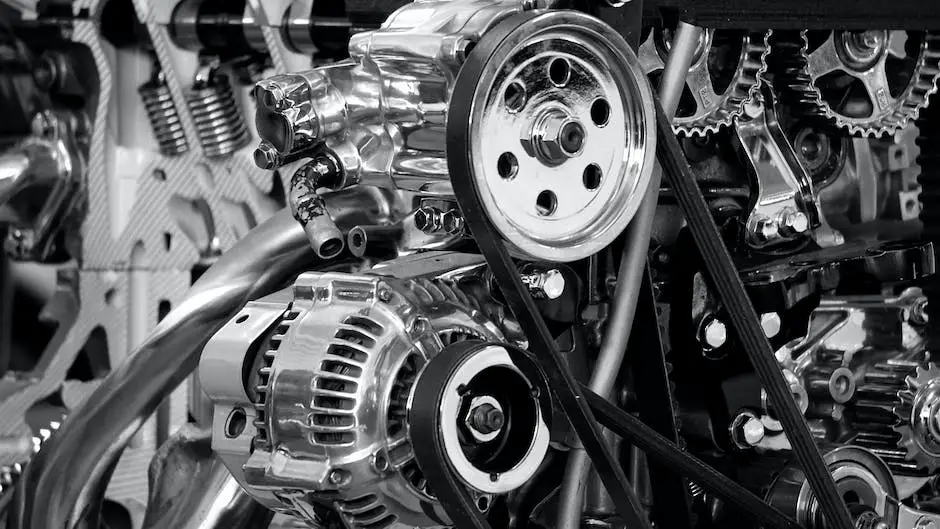The simple pleasure of driving with a cool breeze from an air conditioner on a hot day can quickly be dampened when your vehicle’s air conditioning system begins to emit a high-pitched sound. This troubling noise could be indicative of a range of potential problems, each associated with different components of the air conditioning system. By understanding the varying types of weird noises (hissing, rattling, clicking, or squeaking) an air conditioner can make along with how to identify them, you can be more proactive about diagnosing the issue and effective at preventing lasting damage to your vehicle. It’s important to know how to decipher what the grinding, hissing, rattling or high-pitched sounds could mean regarding your vehicle’s health.
Identifying Air Conditioner Noise
Decoding The Sounds From Your Car’s Air Conditioner
The air conditioning system in a car is a technological masterpiece, communicating in its unique language. Just like the beep of a computer or the whir of a hard drive; your car’s air conditioner’s sounds convey crucial aspects about its current state. By learning to read the signs, we can drastically improve both the system’s performance and its lifespan.
A smoothly working air conditioning system typically makes a soft humming sound. This is the blend of the compressor, blower motor, and condenser fan at work. However, any deviation from this expected noise could indicate an issue needing attention.
- Clicking or Ticking Sounds – Usually, a clicking or ticking sound signifies a potential issue with the AC unit’s compressor or the compressor clutch. It could imply that the compressor is struggling to engage due to an electrical problem or an internal problem.
- Rattling or Banging Noises – If your AC is making rattling or banging noises, it’s possible you’re dealing with a loose or disconnected part. A rattling sound can also suggest that your compressor is aging and needs to be replaced.
- Hissing or Bubbling – These sounds are reminiscent of a refrigerant leak. The noise often comes from the refrigerant escaping from tiny holes in the coils. Left untreated, low refrigerant levels can hamper the efficiency of your system and lead to further damage.
- Humming or Buzzing – A humming noise that persists when the air conditioner is running could mean there’s an electrical issue at play. It can also suggest a failing motor or a problem with the condenser. If the noise turns significantly louder, the air conditioning unit might be dealing with more severe issues, such as a compressor failure.
- Squealing or Screeching – These loud noises usually come from the belt that connects the engine to the AC compressor. When this belt becomes loose, worn-out, or misaligned, it generates a high-pitched squealing or screeching sound as the engine runs.
Engaging with technology is one thing, understanding its language and behavior is another. Remember, catching early symptoms of potential issues will help curtail larger issues down the road.
This form of proactive problem-solving through technology is what allows us to be more efficient. And as self-respecting nerds in the auto mechanic world, nothing engages us more than a car’s engine and components operating at its peak potential with a bit of careful listening and logical troubleshooting.
Remember, while understanding these sounds is helpful, it’s normally best to get a professional mechanic to confirm and fix these issues if you can’t figure it out on your own. Not just because they have the right tools, but because sometimes the problems can be a lot subtler and technical than our listening skills might suggest.

Steps for Diagnosing Air Conditioner Problems
Investigating High-Pitched Noise from Your Car Air Conditioner: Practical Steps
As car enthusiasts, we’re almost always intrigued by challenges. Whether it’s a software puzzle, a hardware hiccup, or something beyond our screens–like a car’s air conditioner making a high-pitched noise, for instance. Our rational and analytical nature drives us to explore, learn, and conquer. So, let’s cut straight to the chase and dive into how we can self-diagnose the weird noises emanating from a car’s air conditioner.
Step 1: Initial Observation
Silence everything within your surroundings or go to a quiet location. Turn the car engine and AC system on. Take note of the conditions under which the high-pitched noise occurs: Is it constant or intermittent? Does it appear only when the car is accelerating, or does it persist even when idle?
Step 2: Source Identification
Pinpoint the exact source of the noise. By opening your car’s hood while the engine is running and air conditioning is on, it can help provide a clearer indication of where the noise originates. Be cautious when doing this, noting that the car fan can pose a significant safety hazard.
Step 3: Blower Motor Assessment
The cause of a high-pitched noise could be a failing blower motor — a component responsible for pushing air through your A/C vents. To check, set your A/C to the highest setting and listen for changes in the pitch. If the high-pitched noise shifts with changes in the speed setting, it’s a clear sign the blower motor may be problematic.
Step 4: Check for External Blockage
Look for debris, such as leaves or small twigs that may have lodged in the vent and are impeding the fan, causing it to emit a high-pitched noise. Be mindful, turning the blower off before examining or removing any blockage.
Step 5: Inspect the Cabin Air Filter
A clogged cabin air filter can strain the blower motor, affecting its function and generating high-pitched noise. A visual examination of the air filter can reveal if it’s dirty and needs replacement.
Step 6: Analyze the AC Compressor
If it’s not the blower motor, the AC compressor might be the culprit. Listen for the high-pitched noise when the AC compressor cycles on and off. If the noise coincides with the compressor’s operation, it might be wearing out.
While these steps can help demystify a high-pitched noise, it’s crucial to not rule out the need for professional mechanics. They are equipped with the knowledge, tools, and experience to conduct a comprehensive diagnosis and deliver an optimal solution. Embracing tech does not necessarily mean forgoing expert help. When we operate within our limits, we make the most of automation and technology.

Solutions for Air Conditioner Noise in Your Car
Encountering a piercing or high-pitched noise from your car’s air conditioner can be a puzzling challenge, promising deep dives into technological depths that might initially appear daunting. However, with sound observation and analysis combined with a targeted, methodical approach, it proves manageable.
Step 1 – Initial Observation
Begin by identifying when the noise occurs. Is it only when the air conditioning is activated? Does it persist when the air conditioner is switched off? These observations can help pinpoint whether the non-conforming sound is specifically tied to the air conditioner.
Step 2 – Source Identification
The perceived point of origin for the noise can narrow down potential causes. If the sound seems concentrated near the dash, it is logical to consider internal components such as the blower motor or the air conditioning unit’s compressor. On the other hand, if it seems to emanate from underneath the hood, investigating the compressor, clutch, or belts may be in order.
Step 3 – How to Fix a Blower Motor Issue
A faulty blower motor can produce high-pitched whining or grinding sounds. Be sure to investigate this component thoroughly. Often, the problem can be resolved by lubricating the blower motor or replacing worn-out bearings that could be causing the noise.
Step 4 – How to Clear External Blockage
Excessive noise could be the outcome of external blockage hindering the air flow. Examine the exterior of the compressor and the condenser for any debris, leaves or remnants that might be causing the problem. Careful removal of these residues might be all the correction needed.
Step 5 – Do You Need to Replace the Cabin Air Filter?
The cabin air filter’s role is to keep pollutants like dust and debris from entering the vehicle’s interior through the air conditioning system. A clogged filter can pose significant strain on the system, leading to noises. At this juncture, it is imperative to assess the filter condition and replace it if necessary. This not a very expensive process. Most cabin air filters cost less than $20. You can compare prices here.
Step 6: Is it the AC Compressor? It Might be Time to Call a Mechanic (This Can Be Expensive!)
Finally, the air conditioner’s heart – the compressor – which can wear down over time or due to insufficient oil lubrication, leading to a high-pitched noise. Keep an eye for any signs of wear and tear, oil leakage, damage or weak seals.
Consequently, while resolving high-pitched air conditioner noises might test the limits of your adventurous technical spirit, it is essential to acknowledge the final checkpoint of the troubleshooting journey – the trained and equipped professional mechanic. Armed with the right tools, knowledge and experience, they can facilitate prompt and accurate diagnosis, providing a complete resolution rather than just treating specific symptoms.
Here’s the bad news: Depending on the make and model of your vehicle, replacing the A/C compressor can cost upwards of $1200 – $1500. This includes parts and labor.
Remember, while technology’s allure lies in its complexity and potential for problem-solving, a wise car enthusiast knows just when to call in expert reinforcements. Certain car repairs like this one are often best left in the hands of seasoned professionals.
The key to maintaining your car’s air conditioner and ensuring its longevity lies in your ability to identify common noises and understand the cause behind them. Determining the source of the noise, the inspection procedure of compressor, blower motor, cabin filter, and other related parts can make a significant difference. Implementing effective solutions such as immediate replacement of worn-out components or a possibly an A/C system recharge can help keep these disruptive noises at bay, thus sustaining your driving comfort and maintaining the overall health of your vehicle. Remember, a weird noise from your air conditioner is more than just a nuisance – it’s a call to action.